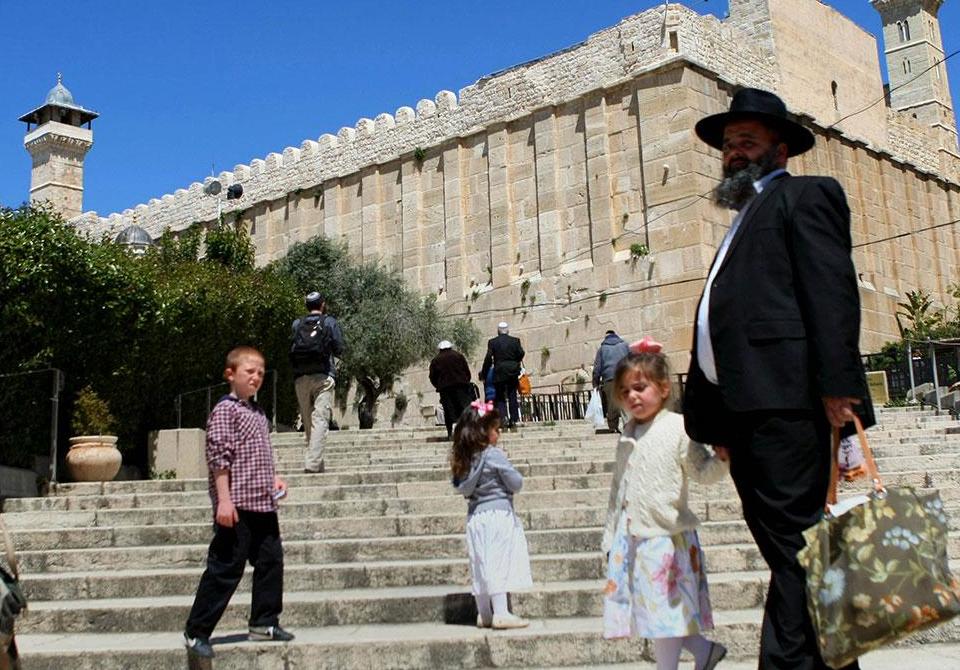15,000 Jews visit Hebron’s Ibrahimi Mosque ahead of Yom Kippur

Fifteen-thousand ultra-Orthodox Jews visited Hebron’s Ibrahimi Mosque yesterday ahead of the Jewish holiday of Yom Kippur
The thousands of Haredim were accompanied by Israeli occupation forces, with occupation forces saying they “provided increased security for the event, guarded the prayer and allowed it to take place safely, with no irregular incidents,” the Times of Israel reported. The number marked an increase on 2017 figures, with an additional 5,000 Haredim in attendance.
Situated in Hebron, in the south of the occupied West Bank, the Ibrahimi Mosque is believed to be the burial place of the Prophet Abraham. It is known by Jews as the Cave of the Patriarchs. In August, Israeli forces closed the Ibrahimi Mosque to Muslim worshippers in preparation for the upcoming Jewish holidays, banning the call to prayer for 24 hours. Fatah called the closure a crime against the Palestinian people and their right to access their holy places, as well as a violation of international conventions.
This was not the first time that Israel restricted Muslim worship at the Ibrahimi Mosque. In July it emerged that Israel prohibited the Muslim call to prayer 298 times in the first half of 2018. Palestinian Religious Endowments Minister, Yousef Adais, said that “the immorality and violations of Jewish settlers have also crossed the line – so much so that they organised parties with music until midnight inside the Ibrahimi Mosque”.
Israel regularly works to increase its Jewish presence in Hebron. In September it emerged that Israel plans to spend 3.5 million shekels ($1 million) of unpaid UNESCO money to develop Jewish heritage sites in the city. The decision was seen as a “direct response to a 2017 UNESCO decisionto inscribe Hebron’s Old Town and the Cave of the Patriarchs [the Ibrahimi Mosque] onto the list of endangered World Heritage sites under the State of Palestine”.
In addition to those Haredim visiting Hebron yesterday, thousands of Jews travelled to pray at Joseph’s Tomb in Nablus, in the north of the occupied West Bank. At least ten Palestinians were injured by Israeli occupation forces who accompanied the worshippers today, according to Wafa. The Israeli soldiers fired rubber-coated metal bullets and tear gas at Palestinians and three were taken to Nablus’ Rafidya hospital for treatment.
Yom Kippur, otherwise known as the Day of Atonement, is an annual Jewish holiday that follows the Jewish Rosh Hashana (New Year) celebrations. In 1973, the Yom Kippur War broke out between Israel, Syria and Egypt and has since come to be seen as a defeat within Israeli domestic circles. The war led to the 1978 Camp David Accords and the signing of a peace deal between Israel and Egypt, as well as Israel’s withdrawal from the Sinai Peninsula which it had occupied since 1967.
Source: Middle East Monitor

WRITE YOUR COMMENT